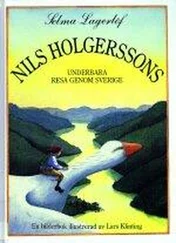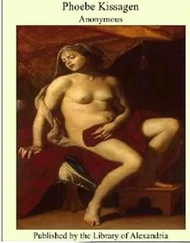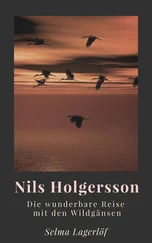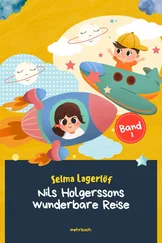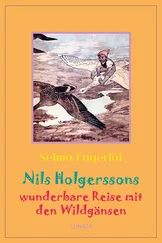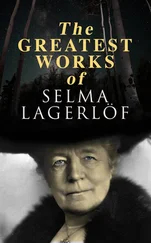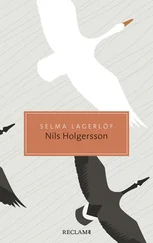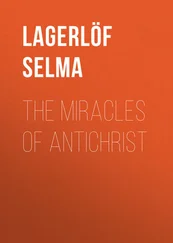Selma Lagerlöf - The Wonderful Adventures of Nils
Здесь есть возможность читать онлайн «Selma Lagerlöf - The Wonderful Adventures of Nils» — ознакомительный отрывок электронной книги совершенно бесплатно, а после прочтения отрывка купить полную версию. В некоторых случаях можно слушать аудио, скачать через торрент в формате fb2 и присутствует краткое содержание. Жанр: foreign_antique, foreign_prose, на английском языке. Описание произведения, (предисловие) а так же отзывы посетителей доступны на портале библиотеки ЛибКат.
- Название:The Wonderful Adventures of Nils
- Автор:
- Жанр:
- Год:неизвестен
- ISBN:нет данных
- Рейтинг книги:4 / 5. Голосов: 1
-
Избранное:Добавить в избранное
- Отзывы:
-
Ваша оценка:
- 80
- 1
- 2
- 3
- 4
- 5
The Wonderful Adventures of Nils: краткое содержание, описание и аннотация
Предлагаем к чтению аннотацию, описание, краткое содержание или предисловие (зависит от того, что написал сам автор книги «The Wonderful Adventures of Nils»). Если вы не нашли необходимую информацию о книге — напишите в комментариях, мы постараемся отыскать её.
The Wonderful Adventures of Nils — читать онлайн ознакомительный отрывок
Ниже представлен текст книги, разбитый по страницам. Система сохранения места последней прочитанной страницы, позволяет с удобством читать онлайн бесплатно книгу «The Wonderful Adventures of Nils», без необходимости каждый раз заново искать на чём Вы остановились. Поставьте закладку, и сможете в любой момент перейти на страницу, на которой закончили чтение.
Интервал:
Закладка:
But at Vittskövle the goosey-gander was stolen, and how it happened has already been related. If the boy had not used all his powers to help him he would never again have been found.
On Saturday evening, as the boy came back to Vomb Lake with the goosey-gander, he thought that he had done a good day's work; and he speculated a good deal on what Akka and the wild geese would say to him. The wild geese were not at all sparing in their praises, but they did not say the word he was longing to hear.
Then Sunday came again. A whole week had gone by since the boy had been bewitched, and he was still just as little.
But he didn't appear to be giving himself any extra worry on account of this thing. On Sunday afternoon he sat huddled together in a big, fluffy osier-bush, down by the lake, and blew on a reed-pipe. All around him there sat as many finches and bullfinches and starlings as the bush could well hold – who sang songs which he tried to teach himself to play. But the boy was not at home in this art. He blew so false that the feathers raised themselves on the little music-masters and they shrieked and fluttered in their despair. The boy laughed so heartily at their excitement, that he dropped his pipe.
He began once again, and that went just as badly. Then all the little birds wailed: "To-day you play worse than usual, Thumbietot! You don't take one true note! Where are your thoughts, Thumbietot?"
"They are elsewhere," said the boy – and this was true. He sat there and pondered how long he would be allowed to remain with the wild geese; or if he should be sent home perhaps to-day.
Finally the boy threw down his pipe and jumped from the bush. He had seen Akka, and all the wild geese, coming toward him in a long row. They walked so uncommonly slow and dignified-like, that the boy immediately understood that now he should learn what they intended to do with him.
When they stopped at last, Akka said: "You may well have reason to wonder at me, Thumbietot, who have not said thanks to you for saving me from Smirre Fox. But I am one of those who would rather give thanks by deeds than words. I have sent word to the elf that bewitched you. At first he didn't want to hear anything about curing you; but I have sent message upon message to him, and told him how well you have conducted yourself among us. He greets you, and says, that as soon as you turn back home, you shall be human again."
But think of it! Just as happy as the boy had been when the wild geese began to speak, just that miserable was he when they had finished. He didn't say a word, but turned away and wept.
"What in all the world is this?" said Akka. "It looks as though you had expected more of me than I have offered you."
But the boy was thinking of the care-free days and the banter; and of adventure and freedom and travel, high above the earth, that he should miss, and he actually bawled with grief. "I don't want to be human," said he. "I want to go with you to Lapland." "I'll tell you something," said Akka. "That elf is very touchy, and I'm afraid that if you do not accept his offer now, it will be difficult for you to coax him another time."
It was a strange thing about that boy – as long as he had lived, he had never cared for anyone. He had not cared for his father or mother; not for the school teacher; not for his school-mates; nor for the boys in the neighbourhood. All that they had wished to have him do – whether it had been work or play – he had only thought tiresome. Therefore there was no one whom he missed or longed for.
The only ones that he had come anywhere near agreeing with, were Osa, the goose girl, and little Mats – a couple of children who had tended geese in the fields, like himself. But he didn't care particularly for them either. No, far from it! "I don't want to be human," bawled the boy. "I want to go with you to Lapland. That's why I've been good for a whole week!" "I don't want to forbid you to come along with us as far as you like," said Akka, "but think first if you wouldn't rather go home again. A day may come when you will regret this."
"No," said the boy, "that's nothing to regret. I have never been as well off as here with you."
"Well then, let it be as you wish," said Akka.
"Thanks!" said the boy, and he felt so happy that he had to cry for very joy – just as he had cried before from sorrow.
GLIMMINGE CASTLE
BLACK RATS AND GRAY RATS
In south-eastern Skåne – not far from the sea there is an old castle called Glimminge. It is a big and substantial stone house; and can be seen over the plain for miles around. It is not more than four stories high; but it is so ponderous that an ordinary farmhouse, which stands on the same estate, looks like a little children's playhouse in comparison.
The big stone house has such thick ceilings and partitions that there is scarcely room in its interior for anything but the thick walls. The stairs are narrow, the entrances small; and the rooms few. That the walls might retain their strength, there are only the fewest number of windows in the upper stories, and none at all are found in the lower ones. In the old war times, the people were just as glad that they could shut themselves up in a strong and massive house like this, as one is nowadays to be able to creep into furs in a snapping cold winter. But when the time of peace came, they did not care to live in the dark and cold stone halls of the old castle any longer. They have long since deserted the big Glimminge castle, and moved into dwelling places where the light and air can penetrate.
At the time when Nils Holgersson wandered around with the wild geese, there were no human beings in Glimminge castle; but for all that, it was not without inhabitants. Every summer there lived a stork couple in a large nest on the roof. In a nest in the attic lived a pair of gray owls; in the secret passages hung bats; in the kitchen oven lived an old cat; and down in the cellar there were hundreds of old black rats.
Rats are not held in very high esteem by other animals; but the black rats at Glimminge castle were an exception. They were always mentioned with respect, because they had shown great valour in battle with their enemies; and much endurance under the great misfortunes which had befallen their kind. They nominally belong to a rat-folk who, at one time, had been very numerous and powerful, but who were now dying out. During a long period of time, the black rats owned Skåne and the whole country. They were found in every cellar; in every attic; in larders and cowhouses and barns; in breweries and flour-mills; in churches and castles; in every man-constructed building. But now they were banished from all this – and were almost exterminated. Only in one and another old and secluded place could one run across a few of them; and nowhere were they to be found in such large numbers as in Glimminge castle.
When an animal folk die out, it is generally the human kind who are the cause of it; but that was not the case in this instance. The people had certainly struggled with the black rats, but they had not been able to do them any harm worth mentioning. Those who had conquered them were an animal folk of their own kind, who were called gray rats.
These gray rats had not lived in the land since time immemorial, like the black rats, but descended from a couple of poor immigrants who landed in Malmö from a Libyan sloop about a hundred years ago. They were homeless, starved-out wretches who stuck close to the harbour, swam among the piles under the bridges, and ate refuse that was thrown in the water. They never ventured into the city, which was owned by the black rats.
But gradually, as the gray rats increased in number they grew bolder. At first they moved over to some waste places and condemned old houses which the black rats had abandoned. They hunted their food in gutters and dirt heaps, and made the most of all the rubbish that the black rats did not deign to take care of. They were hardy, contented and fearless; and within a few years they had become so powerful that they undertook to drive the black rats out of Malmö. They took from them attics, cellars and storerooms, starved them out or bit them to death for they were not at all afraid of fighting.
Читать дальшеИнтервал:
Закладка:
Похожие книги на «The Wonderful Adventures of Nils»
Представляем Вашему вниманию похожие книги на «The Wonderful Adventures of Nils» списком для выбора. Мы отобрали схожую по названию и смыслу литературу в надежде предоставить читателям больше вариантов отыскать новые, интересные, ещё непрочитанные произведения.
Обсуждение, отзывы о книге «The Wonderful Adventures of Nils» и просто собственные мнения читателей. Оставьте ваши комментарии, напишите, что Вы думаете о произведении, его смысле или главных героях. Укажите что конкретно понравилось, а что нет, и почему Вы так считаете.

